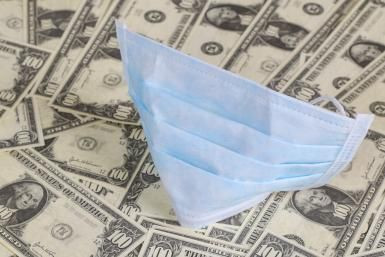'Millionaires For Humanity' Call On Increased Taxes For The World's Rich To Help Pay For Coronavirus Relief

KEY POINTS
- "Millionaires for Humanity" called on world governments to increase taxes on the wealthy to help pay for coronavirus relief efforts
- Signatures in an open letter calling for the tax increase included the heirs to the Disney fortune, one of Ben & Jerry's founders, and New Zealand second-richest man
- The letter's release precede the G20 finance ministers and central bank governors meeting in Jeddah, Saudi Arabia
More than 80 of the world's mega-rich are pushing their governments to raise taxes on the wealth to help pay for coronavirus relief efforts.
The group, named “Millionaires for Humanity,” made the call in an open letter Monday, citing the long-term economic problems the pandemic will cause and the strain on healthcare systems worldwide as reasons for the “permanent” change.
Signers include Disney heirs Tim and Abigail Disney; Ben & Jerry’s co-founder Jerry Greenfield; Cisco System founder Bob Burnett; English director and screenwriter Richard Curtis; and Stephen Tindall, New Zealand’s second-richest man.
“As Covid-19 strikes the world, millionaires like us have a critical role to play in healing our world. No, we are not the ones caring for the sick in intensive care wards. We are not driving the ambulances that will bring the ill to hospitals. We are not restocking grocery store shelves or delivering food door to door. But we do have money, lots of it. Money that is desperately needed now and will continue to be needed in the years ahead, as our world recovers from this crisis," the letter read.
“Today, we, the undersigned millionaires, ask our governments to raise taxes on people like us. Immediately. Substantially. Permanently.”
The letter goes on to warn the economic impact of the pandemic could “last for decades” if action isn't taken, pointing to the millions who have already lost their jobs or businesses, the strain on protective equipment supplies, and the risk of pushing nearly half-billion into poverty.
A few of the moneyed have already contributed hefty sums to coronavirus relief efforts, including Amazon CEO Jeff Bezos.
Still, critics argue the mega-rich could do so much more.
Amazon, and in turn Bezos, has benefited from the health crisis. The e-commerce giant saw even a bigger number of consumers switch to online shopping during lockdowns.
Amazon saw a bump in sales for the first quarter, although spending to keep customers and workers safe outpaced sales slightly.
Bezos has donated about $100 million to food banks during the pandemic, but analysts have pointed out his donations add up to less than 0.1% of his wealth.
“The problems caused by, and revealed by, COVID-19 can’t be solved with charity, no matter how generous,” the letter states. “Government leaders must take the responsibility for raising the funds we need and spending them fairly. We can ensure we adequately fund our health systems, schools, and security through a permanent tax increase on the wealthiest people on the planet, people like us.”
This weekend, the G20 finance ministers and central bank governors meet in Jeddah, Saudi Arabia, to discuss the pandemic's financial toll and how to move forward.
In a statement, the G20 called on member states to “address global inequality and acknowledge that tax increases on the wealthy and greater international tax transparency are essential for a viable long-term solution.”
© Copyright IBTimes 2024. All rights reserved.





















